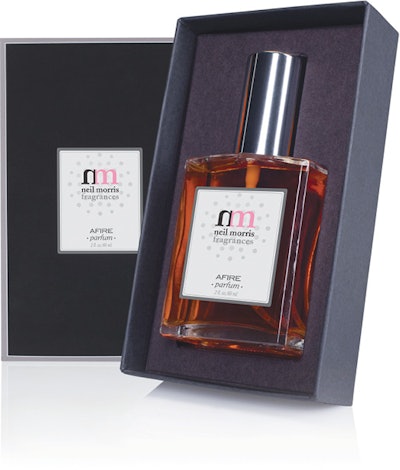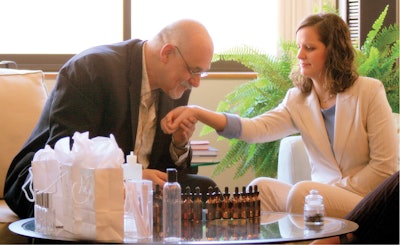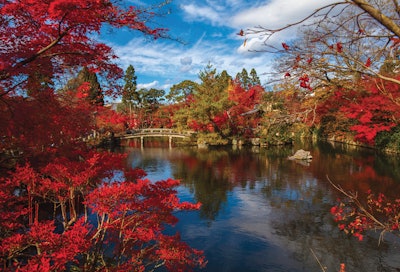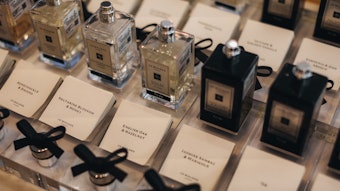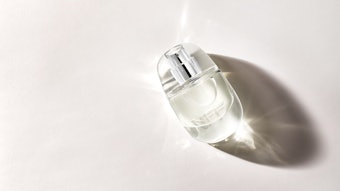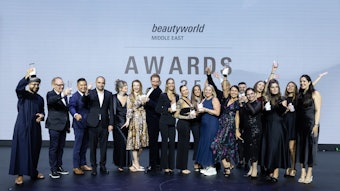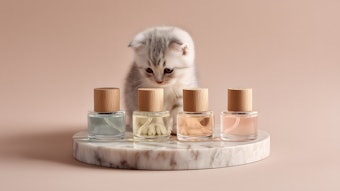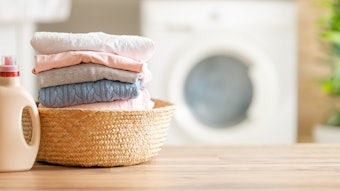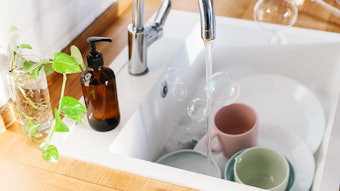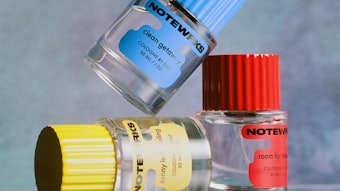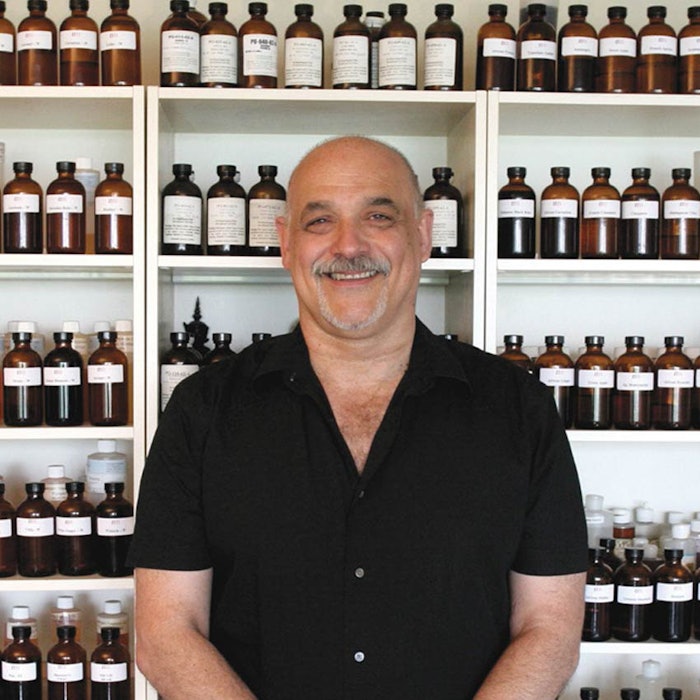
When did the lines start blurring? In 2012, when Juniper Ridge set up its field lab and began extracting essences from wild harvested plants collected by backpackers? Maybe in 1995, when Mandy Aftel switched from practicing psychotherapy in Berkeley, California to crafting chef’s essences and natural fragrances instead? Maybe it was when taxi driver Christopher Brosius wrote his “I Hate Perfume” manifesto and began bottling smells like Dirt and Snow? Perhaps it was as early as 1976 when perfumer Jean-Francois Laporte was challenged to design a fragrance to go with his friend’s banana costume for a gala at the Folies Bergères, a creative dare which launched the house of L’Artisan Parfumeur?
Whenever it was, Neil Morris, 67, has been right there at the forefront of the niche perfume revolution, blending his own scents since the 1960s. He is part of the original group of artisanal perfumers, following his nose and doing his own thing; finding ways around barriers to entry, and happily ignoring the rules that don’t suit him. Neil’s story is also uniquely American—the style of his business and creativity would have risked suffocation under the growing straightjacket of European consumer product regulations.
The Oil Guy
“The hippies used to wear patchouli, sandalwood and ambergris,” says Neil, “but I would take those and blend them all together in a certain way—and people would say ‘Hey man, would you make me some of that oil?’ And that’s how I became known as the oil guy. It just sort of happened.”
“I started on my own. I’m totally self-taught. I went straight in to purchasing oils. Of course when the internet came about, that changed everything—I was able to order different compounds and oils from many different sources and able to test the samples out and blend them and see how they worked together. That’s how I did it—through trial and error. I would learn what not to blend and that certain things work together better than others.”
Today Neil’s palette has expanded considerably from hippie oils—he uses a broad range of natural and synthetic materials to create the effects he wants. He views himself as a fragrant storyteller and describes his fragrances as “exciting, unusual and beautiful.” His website features three options: a pillar line of perfumes, the possibility of a bespoke fragrance consultation, and the ‘Vault’, 50 fragrances out of the possible three digit figure of his entire back catalog.a
Neil recalls always having had the smell track wide open, even as a prepubescent boy:
“I’d know it wouldn’t snow anymore because the earth had that ripe, loamy smell to it that says it’s ready for new growth and rebirth. Well, my friends thought that I was from outer space,” he reminisces and laughs.
“I didn’t think about it when I was that young. I just assumed that they laughed because they thought I was nuts. I didn’t pay much attention to that at the time. I was busy growing up and doing everything else. But after a while I realized—wait a minute—this is a different approach to life. I’m being led through my nose here.”
Painters Who Just Paint
Not everyone is drawn to a career as a corporate perfumer, or has access to routes which lead there. What is a person to do if they nevertheless want to use fragrant raw materials as an artistic medium?
“If you use the example of painters; there are painters who go to art school and then there are painters who just paint,” said Neil.
“Yes, there are certain technical aspects that go with the territory, but I’m not a chemist. Somebody once asked me in an interview: ‘If you’re not a chemist, how can you know what you are doing?’ I said, well, do you think Van Gogh knew the chemical makeup of the paint he was using? He just bought the paint and used it as a form of self expression. And that’s what I do. I’m not saying I’m Van Gogh, but it’s the same principle—just because I didn’t study in perfumery school first, doesn’t mean that I can’t go out there and create something.”
Some of the modern niche perfume concepts verge on the self-parodying and it is almost impossible to tell whether they have been created tongue-in-cheek or not: fragrances that claim to smell of nothingb; perfumers who invite customers to add drops of urine to the perfumec—there was a point in the world of niche when it became tough to know the difference.
There is no gimmickry with Neil. What you see is what you get. He doesn’t claim to be anything other than what he is. He is proud of having gone his own way and of building his own, loyal customer base.
A Slice of Pie
Neil is not the slightest bit worried about technical perfection or doing things the same way as designer brands. That’s because he is not aiming to mimic a Sephora fragrance—he has found his own style and he knows that’s what his customers come to him for. He doesn’t want his fragrances to be interchangeable with anyone else’s.
“I realized the power of fragrance very early—how it can connect you with your emotions like nothing else can,” says Neil, “and for me, there has to be something behind a perfume. I don’t want to sit down and just think, ‘Okay, let’s make a perfume that smells like the ocean at midnight.’ If I’m going to create something that smells like that, it’s going to be based on the fact that I walked along the ocean at midnight at some time and it resonated with me. And I know when a fragrance is done, it’s when it tells the story I want it to.”
Perfume is intensely personal to Neil. “Whenever I create a perfume and share it with people,” he said, “it feels like I’m telling them ‘here is a slice of pie from my life, come taste it, see if you like it.’ It is intimate because I’m letting people into my world. And I’m allowing them to experience it, and if they like it, then we share something. Whatever country they live in—it doesn’t matter—we’ve connected.”
Neil has captured the imagination of customers, perfumistas, bloggers and critics alike. Chandler Burr wrote in a review of Neil’s perfume:
“I have never smelled anything quite like Afire. It opens as brandied, minty plum jam, warm as a steam radiator and sweet. Then the mint (which is terrific) does a dive, coming to hover just below the surface—all of Morris’s perfumes do a fast-forward metamorphosis on the skin—and Afire becomes the scent of an ineffable fruit liqueur coming to a boil in a pastry chef’s pot.”d
Or how about this fragrance vlogger, on Neil’s perfume October: “I think it’s like if grandma ran a headshop. Imagine if your little old lady grandma suddenly inherited a head shop, but was also really into baking apple and pumpkin pies? Wouldn’t she be like—yes, honey, the bong over there is $45, the pipes here are $25 and the apple pie is $15.” This is a compliment from the reviewer. She describes Morris’ fragrances as “interesting and a little different” and continues on to say how much she loves to wear October.”e
What excites Neil’s customers about wearing one of his fragrances is the invitation to link it to personal memories, and to find recognizable reference points in everyday life. They go to Neil precisely because his fragrances don’t smell like anything else.
The Tarot Reading
Neil spends the majority of his perfume designing time creating bespoke fragrances. He has developed and refined a series of questions which extract a ‘perfume brief’ of sorts from his clients, but there is much more to the process than that.
“I ask about 25 questions and tell them there are no wrong answers. I’m just trying to get to know them. I ask things like: What is your favorite color; favorite time of day; what are some of your favorite books and movies; what’s your favorite season; what is your happiest memory from childhood... if you had the choice, would you walk through the woods, walk on the beach, or walk through a field of flowers?”
“And based on all of these answers, I begin to build a fragrance in my head.”
“I say to people: ‘I’m just taking your history and putting it in the bottle for you’ and I will tell their story in scent that way,” says Neil.
Involving the client so intimately in the process creates a situation where they have developed a personal relationship with the product before they have even smelled it.
“This is a very personal process and I have not had anybody leave unhappy, ever. And I have done hundreds,” says Neil and grins.
“One of the funniest consultations was for a young woman, let’s call her Susan, who, I hate to say, was your stereotypical librarian. Quiet, a little mousey; timid. Asking her questions was like pulling teeth. She would give these one word answers throughout. That is, until I asked her: ‘When people around you smell your new fragrance, what do you want them to say to you? Finish this sentence for me—Susan, you smell...’ and she answered without missing a beat: ‘sexy as hell,’” Neil bursts out laughing, “Well, that was it—the dam broke and we were both so relieved. And, of course I made her smell sexy as hell.”
It is clear Neil loves people, and finding out what makes them tick. It is as integral to his process as essential oils. It is no coincidence he also studied astrology and does tarot readings on the side.
The Essence of a Niche Perfumer
“I can’t say that this is a formula for becoming a niche perfumer, but I will say that most of the niche perfumers I found are very sensitive people; very involved in life, and very spiritual. I wouldn’t say religious—I’m talking about being more open to various concepts of spirituality,” said Neil.
Neil is his own buyer, compounder, filler, sales person, marketing manager, social media guy; everything. There is no doubt about who is behind his scents. If you visit his studio for a personal consultation, you design the scent together there and then and leave with a bottle. No chance for a sneaky call to a supplier; no doubt that the scent itself will be unique, and it’s clear that Neil is the genuine article as far as ultra niche artisanal perfumers go. There are a few people out there in the world of niche fragrance claiming to be perfumers who, in reality, are performing the role of an art director at best. There is nothing wrong with that if you disclose the fact, but many do not.
Highly trained corporate perfumers live a completely different life; serve a completely different need, have several layers between them and the end consumer. Their methods and day-to-day work are so different that it seems faintly comical to even use the word ‘perfumer’ to describe both jobs.
Do end consumers know this? No. Does it matter? Maybe; maybe not.
The Elephant in the Room
So what if barriers to entry have broken down for working with perfume materials? After all, blogs and websites broke down barriers to journalism, self-published e-books to the book publishing industry, MySpace, Napster and Soundcloud to the music industry; digital camera revolution to photography—need I go on—the whole world has changed so dramatically that why should perfumery be any different?
The questions to ask here are: what happens if you have access to tools that are potentially dangerous? And: how dangerous are perfumes, really?
“As far as I am aware, nobody has ever died from perfume,” says Neil, “and in the entire time I have been creating fragrances, I have had one complaint of a rash. I gave the customer a refund and told them to stop using the product.”
“I work with some clients in Europe and of course I then have to get everything IFRA-certified.”
There has been an increase in the demand for niche perfumes, and whether the industry likes it or not, this area is growing. Although Neil’s clients are mostly individuals, he has created fragrances for boutiques and department stores, too.
Nothing good has come from ignoring the fragrance industry’s problem areas before, so it might be useful to consider what can be done to support the artisanal perfumers and help them create safely and whose job that should be. Happily, an artisan perfumer is unlikely to be in possession of a barrel of orange oil and tip it into a river, but you could see a scenario happening where someone blending essential oils at home discards an unused mixture down the drain, leading to disruption at the local water purification plant.
The Rise of Niche
Artisanal and ultra niche perfumers serve a certain kind of luxury consumer, and also the growing market segment of people who value customization, personalization, and a handmade feel above all. They are attending workshops to make their own Christmas decorations and jam; learning how to bind their own journals. This is such a big trend in Western culture at the moment that the largest threat to Neil’s future will not be regulatory or bureaucratic—it is his own customers deciding to go one step further and start making their own fragrances.
With Neil having been in the game for 30 years, he now views the latest developments through much the same eyes as the corporate industry might have looked at him in the 70s: “There has been an increase in the interest towards niche. This demand has been matched by people going into niche perfumery. They go on a one day course and think, ‘oh, I can do that’—and the next thing you know—there are more and more people who think of themselves as perfumers, and many of them just don’t know what they are doing,” he reflects.
Something what unites many ultra niche perfumers is their desire to craft not just certain types of scent, but creating a very particular lifestyle, too. Many reject mainstream lifestyle just as much as they reject mainstream perfumes. Not everyone who has a talent for acting aspires to a big screen career and niche perfumery is the local theatre of the perfume world.
